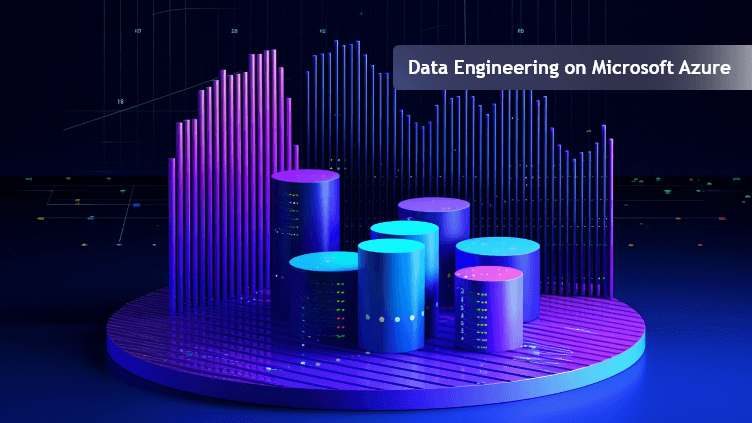Why take up the Online Selenium Certification Course?
Azure Data Engineering Certification Course is the best choice for learners seeking to design, implement, monitor, and optimize high-performing and reliable data pipelines and data stores on the Microsoft Azure platform. With experienced instructors, real-world case studies, and flexible learning options, this course provides learners with practical skills and knowledge for identifying and troubleshooting operational and data quality issues. The key features of this course include:
Azure Data Engineering Training Benefits
The world of data has evolved and the advent of cloud technologies is providing new opportunities for businesses to explore. Azure data engineering is one of the most sought-after and fastest-growing technologies in the market today. As per Microsoft, 95% of Fortune 500 firms use Azure cloud services, and as a result, there is an increasing need for Microsoft-certified experts who can use Azure and manage massive volumes of data. The best way to land you a good job with a handsome salary in this domain is to get an Azure Data Engineer Certification.
- Comprehensive coverage of key topics such as- Azure Cosmo DB, Azure Synapse, Azure Databricks, Azure Stream Analytics, Azure HDInsight, and Azure Data Factory.
- Assignments and quizzes in each module
- Practice projects to hone your skills
- 7+ exam dumps containing 100 scenario based exam questions each to help you prepare for the certification exam
- 3 simulation exams to let you assess your preparation
- Certification guide for DP:203
- Interview preparation material to help you prepare for the interviews
- Bonus and additional content for further knowledge enhancement
- 3 capstone projects to bolster your resume
What are the prerequisites for this Azure Data Engineering Course?
You don't need to possess any predefined skills or expertise to enroll in this course. However, any prior knowledge of Linux, Python, SQL, and Scala would be appreciated.
Why should you become a certified Azure Data Engineer?
Learning an Azure Data Engineering Certification Course can provide several benefits, such as:
- Career Growth: With the increasing demand for data engineering skills, certified Azure Data Engineers are highly sought after by top companies worldwide. This opens up a plethora of career opportunities for professionals in this field.
- Future Demand: The demand for skilled data engineers is projected to increase in the future, with the adoption of cloud computing, big data analytics, and machine learning. This makes it an ideal time to gain certification in Azure Data Engineering.
- Skills: The certification provides a comprehensive understanding of Azure data services, data modeling, ingestion, transformation, processing, analysis, visualization, monitoring, and optimization. This enables professionals to develop and deploy high-performing and reliable data pipelines and data stores.
- Salary Growth: Certified Azure Data Engineers can expect to receive higher salaries compared to non-certified professionals. The certification is an excellent way to demonstrate expertise and experience in this field, which can lead to higher paying job opportunities.
- Hands-on Experience: The certification course provides hands-on experience with real-world case studies and industry projects, enabling learners to apply their skills in a practical setting.
- Industry Project Exposure: Learners gain exposure to industry best practices and the latest tools and technologies used in data engineering. This enhances their knowledge and skills, making them more competitive in the job market.
What are the objectives of our Azure Data Engineering Certification Course?
Our Azure Data Engineering Certification Course is designed as per industry standards and help learners in designing, implementing, and maintaining secure and compliant data processing pipelines using Azure data services and frameworks. The exam assesses the candidate's ability to integrate, transform, and consolidate data from various structured, unstructured, and streaming data systems into a suitable schema for building analytics solutions.
Candidates are expected to be proficient in using Azure Data Factory, Azure Synapse Analytics, Azure Stream Analytics, Azure Event Hubs, Azure Data Lake Storage, and Azure Databricks to create data processing solutions. The exam also tests the candidate's ability to design, implement, monitor, and optimize data platforms to meet the data pipelines, ensuring that the operationalization of data pipelines and data stores are high-performing, efficient, organized, and reliable, given a set of business requirements and constraints. Additionally, candidates should be able to troubleshoot operational and data quality issues and design data stores with different architecture patterns based on business requirements.
What are the skills of a certified Azure Data Engineer?
Certified Azure Data Engineers ideally possesses the following skills:
- Expertise in integrating, transforming, and consolidating data from various structured, unstructured, and streaming data systems into a suitable schema for building analytics solutions.
- Ability to help stakeholders understand the data through exploration, and build and maintain secure and compliant data processing pipelines using different tools and techniques.
- Knowledge of various Azure data services and frameworks to store and produce cleansed and enhanced datasets for analysis. Ability to design data stores with different architecture patterns based on business requirements, including modern data warehouse (MDW), big data, or lakehouse architecture.
- Ability to ensure that the operationalization of data pipelines and data stores are high-performing, efficient, organized, and reliable, given a set of business requirements and constraints. Ability to identify and troubleshoot operational and data quality issues.
- Ability to design, implement, monitor, and optimize data platforms to meet the data pipelines.
- Solid knowledge of data processing languages, including SQL, Python, and Scala, and understanding of parallel processing and data architecture patterns.
- Proficiency in using Azure Data Factory, Azure Synapse Analytics, Azure Stream Analytics, Azure Event Hubs, Azure Data Lake Storage, and Azure Databricks to create data processing solutions.








